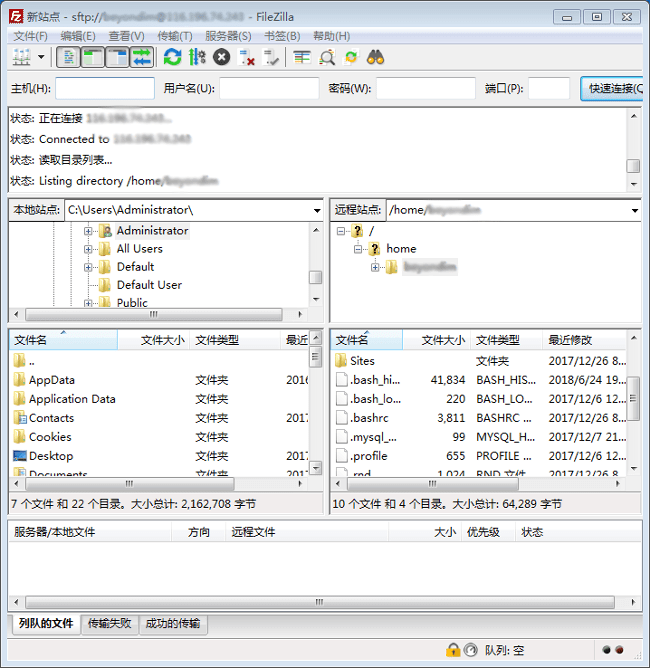

Your files on the server will appear in the FileZilla window.
#Filezilla s3 windows#
There are man pages for chmod, setfacl and nfs4_setfacl.īack to top Moving Data between your local machine and the CRC Clusters SFTP Clients CyberDuckĬyberDuck is a popular open source SFTP client for Windows and Mac. The command for bgfs is setfacl, and for ZFS is nfs4_setfacl. If you want to share file with other group members or users, submit a help ticket and we can use Access Control Lists (ACLs) – a more fine-grained control than Unix file permissions allow.To give the group the ability to edit or change a file, add write access to the group:.Then give the group read and execute access to each file you want to share.To share files with your group, give the group read and execute access for each directory from your top-level directory down to the directory that contains the files you want to share.Access to files by the group members is governed by Unix file permissions. For detailed information on Unix file protections, see the man page for the chmod command.The 2 sets the sticky bit, group members have read + write permission, and other users cannot access the folder.

The top level folder is owned by root:groupname with 2770 permission. Group shared folders on /ix, /bgfs, /zfs1, or /zfs2 can be requested via ticket. You can check your usage and quotas across these filesystems with the wrapper script ~] : crc-quota /zfs1 and /zfs2, 1 PB file systems for archival storage./bgfs, a BeeGFS file system for persistent file storage that is no longer being provisioned on.5 TB increments of extra storage are available for purchase at a subsidized rate of $65 per TB per year.If you do not have a location provisioned, please let us know with this form.There is no charge for a 5 TB provision on ix.5 TB provisions for new allocations can be found here./ix and /ix1, enterprise storage locations for persistent file storage.Also referred to as the 'login directory' and is the entry point when a user logs into the CRC ecosystem.It contains sub-directories for each user group, and those contain individual user directories./ihome ($HOME), the system housing home directories.There are several distinct file spaces available on clusters, each serving a different function.


 0 kommentar(er)
0 kommentar(er)
